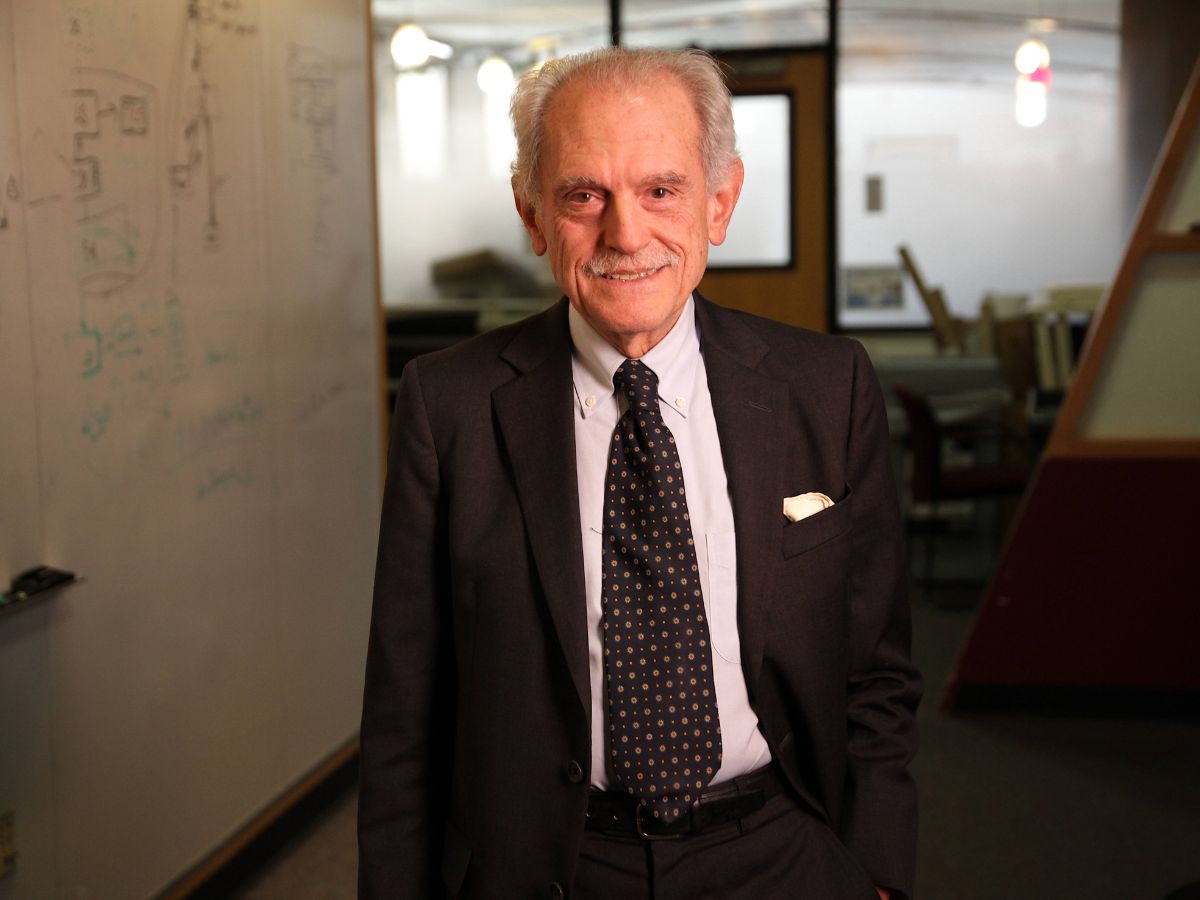Alberto Sangiovanni Vincentelli is a member of the IIT Scientific Technical Committee
(full press release from The BBVA Foundation Frontiers of Knowledge)
The BBVA Foundation Frontiers of Knowledge Awards in Information and Communication Technologies has gone in this fifteenth edition to Professor Alberto Sangiovanni Vincentelli (University of California, Berkeley) for “radically transforming” the design of the chips that power today’s electronic devices, giving rise to “the modern semiconductor industry,” said the committee in its citation.
“By providing software tools to ease the creation of complex chips, he made possible a worldwide explosion of integrated circuit design spanning research, industry and academia,” the citation continues. “Professor Sangiovanni Vincentelli created a rich ecosystem of electronic design automation (EDA) techniques that revolutionized – and remain at the core of – how we build computer systems.”
To add to his transformative scientific contributions, which have opened up whole new lines of research, Sangiovanni Vincentelli – Professor of Electrical Engineering and Computer Sciences at Berkeley – co-founded two companies, Cadence and Synopsys, which “collectively drive the entire semiconductor industry,” in the words of the committee, producing “design tools that are used in every single computer chip built today.” His candidature for the Frontiers of Knowledge Awards was backed by a total of 28 nominators, both institutional and individual, among them the 2017 Nobel Physics laureate Barry Barish, and 2007 Turing Award winner Joseph Sifakis.
The awardee has transformed chip design in three fundamental ways. Firstly, he proposed a method to speed up electronic circuit simulations, making them a truly practical solution. He then developed a system to automatically generate such circuits by means of hardware description languages. And lastly, he devised a program to place and connect each circuit’s multiple components for optimal performance and minimizing power consumption.
Ronald Ho, Senior Director of Silicon Engineering at Meta and secretary of the award committee, defines Sangiovanni Vincentelli as the “enabler of the chip industry, whose contributions have transformed the world of electronics” that provides us with the tech devices and systems omnipresent in our lives, from personal computers to mobile phones right up to the microprocessors installed in automobiles, planes and electrical appliances: “You can see the durability of his ideas because the two companies he founded to allow their industrial implementation are now driving the semiconductor industry. The chips we use today were built from the ideas that Sangiovanni Vincentelli put together.”
“When we think back to the beginning of the computer industry,” says Ho, “silicon chips were relatively simple, since they had few transistors and could be designed by hand. Today, in a modern smartphone, chips have billions of transistors, so, how did we get from doing chips by hand with a few thousand transistors to today’s complex chips? Well the answer is through the work of the man receiving the award today.”
Jordi Cortadella, Professor of Computer Science at BarcelonaTech (UPC), was taught by Sangiovanni Vincentelli in the late 1980s during a postdoctoral stay at Berkeley, and went on to work alongside him, co-signing various scientific papers. “The chips in today’s electronic devices”, he points out, “contain billions of transistors of nanometric size [one nanometer equaling one billionth of a meter], putting them beyond the scope of manual design. The tools developed by Sangiovanni Vincentelli enabled automated design of circuits, triggering exponential growth in chip production worldwide.”





